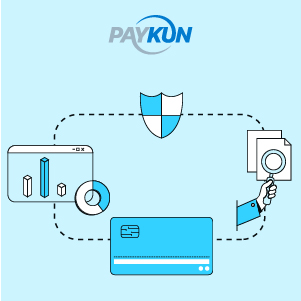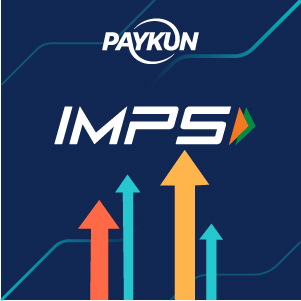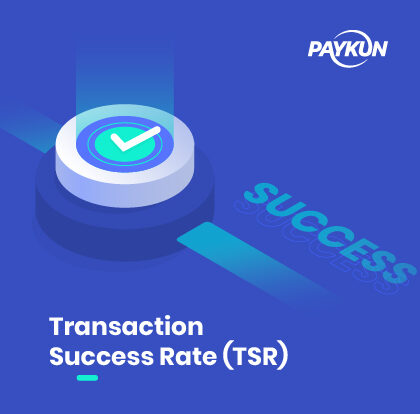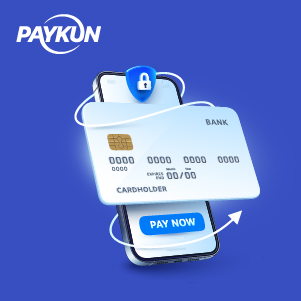In order to accept online payments, you need to know a few of the technical terms related to its process. So, you need to know about these terms when you come across them. Two of such terminologies include payment gateway and merchant account. These two are confused to have the same meaning and function, but in reality payment gateway and the merchant account are different.
Merchant Account Vs Payment Gateway
Follow this blog and know about these respective terms to understand the difference between the merchant account and the payment gateway
What is a Payment Gateway?
After you have selected the items in an online purchase, you proceed forward to make the payment. The payment checkout process, in the end, with various payment method options in one place is provided by the payment gateway. The customer can proceed with the payment mode of their preference.
What are these payment methods? There are multiple payment mode options available to accept online payment such as debit cards, credit cards, UPI, mobile wallets, net banking, QR code, etc. With these modes, the customer can make the payment over the internet.
Meaning
Thus, a payment gateway is basically a checkout provided to the customers to make the payment with their selected preferred payment method from all the available multiple payment options.
This is its function; however, its mechanization is way too complex than it can be seen in this definition of payment gateway. The backend process is too complicated.
Functions
- You see, all these payment options are separate entity so the payment gateways do the tie-ups and integrate all of them in one checkout form, which requires a lot of technical work, coding, and collaborations with each of them including banks, wallets, etc.
- It is responsible to facilitate online payments and its back and forth transfer between the various entities. The sending of the request and responses to and fro is done by the payment gateway.
- Payment Gateway is responsible for a secure payment transfer between the parties and that the details are transferred in a safe and secure way. For that, they need to have strong security compliances and standards to be followed.
- The payment gateway is to be integrated on the eCommerce website. In simple words, it needs to be added technically with the help of codings. (These days the payment gateways provide the ready plugins and SDKs which are in the form of ready codings and ready-to-use form just after a few things to be added to is like Secret API and Encryption Key)
Process
The payment gateway can be explained better through its process and how does it perform at various stages of an online payment transfer-
- When the customer places an order the order details are captured and sent to the merchant through the payment gateway
- Later, the payment request with the payment information is encrypted and passed on to the payment gateway in an encrypted manner (secure-way)
- The Payment Gateway then sends the authentication request to deduct the payment from the issuing bank and receives the authorization for it from the bank.
- Upon authorization, the payment is deducted and retained by the payment gateway in a dedicated account; settled to the service provider/merchant as per their settlement cycle.
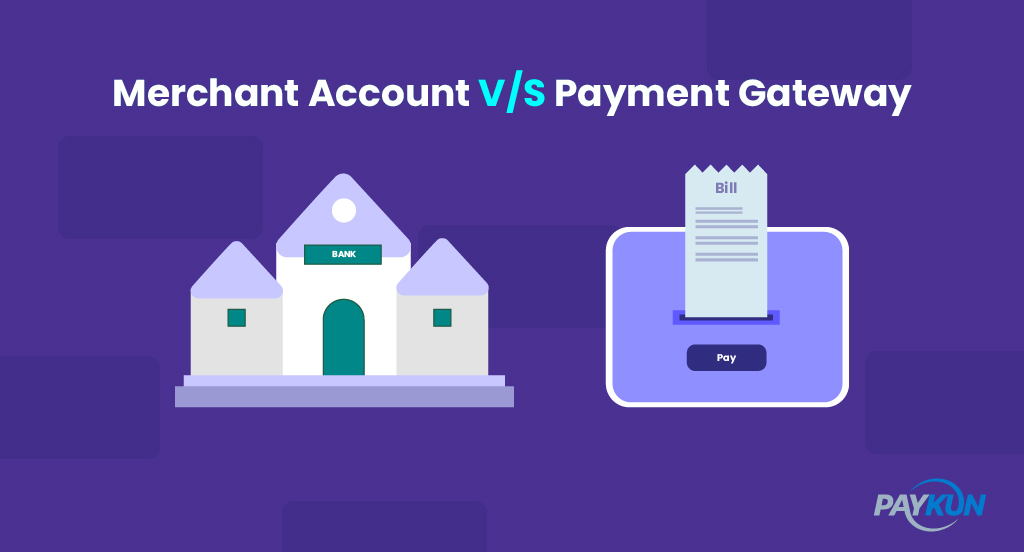
So, as you can get an idea, the payment gateway is present at each stage and is responsible for sending the requests, and getting the responses, and acting upon the same between the various parties involved until the funds are settled to the merchant.
Now to further get a clear idea on merchant account vs payment gateway, let us know what is a merchant account.
What is a Merchant Account?
When the customer makes the payment with their preferred payment option, it is deducted from his account and is first credited in a bank account and then settled to the merchant from there. This bank account is known as the merchant account.
This account does not perform any usual operations such as withdrawal and is not a normal one.
These accounts are solely for the purpose of making the process of online funds transfer possible by the payment gateway. This account is separate from the payment gateway but in a way represents the payment gateway.
Functions
The sole function of these types of accounts is to facilitate the settlement of online payments. The funds are third-party money, they are neither of the payment gateway nor of any other party. They belong to the respective merchant and meant to be transferred to his bank account in the duration of the settlement cycle fixed which can vary from t + 3 to 7 working days (t is the transaction date) and upon the successful completion of the promised services to be provided to the customer.
If the customer does not receive the services then the funds can be refunded to the customers. Also, the merchant can issue a refund to the customer because of some reasons.
It can collect a single merchant’s multiple online payments and settle them together at a time instead of so many payments making multiple entries. They are provided by the acquiring bank and together with the card processors, they are also responsible for the fraud detection on the attempted transaction by the customer.
Settlement Cycle
As mentioned earlier, the amount kept as a deposit in the merchant account belongs to only the merchant. And needs to be transferred to them in a pre-defined time period known as the settlement cycle.
Depending upon the merchant’s reputation, business reputation, type of business, payment method type, etc this settlement cycle can be decided.
Types of Merchant Accounts
There are mainly two types of a merchant account – Dedicated and Aggregate
The payment gateway provides its services to a lot of merchants and all of them may be associated with one merchant account. As per their defined settlement cycle, the funds might be settled in their respective accounts. This type of account is an Aggregate Merchant Account. It is easier to get than the dedicated merchant account; though a few basic details and documents need to be submitted to obtain it.
Whereas, the dedicated merchant account solely transfers the funds of that merchant to whom it belongs. The advantage of customized rates can be taken when the transaction volume is high. The process to get a dedicated account is a little complicated and in-depth credit check and underwriting process.
PayKun Payment Gateway
PayKun is a safe, secure, and reliable payment gateway following the best security compliances such as PCI DSS compliant and 256 bit AES encryption standards.
It facilitates 120+ online payment methods as well as payment & master links, which means the website is not compulsory to provide a checkout to the customers. It also facilitates a fast settlement process through the merchant account and makes the whole payment transfer speedy.
Like an ideal payment gateway, it has a smart merchant dashboard giving graphical analysis and comparisons and providing the details of the payments, transactions, refunds, settlements, etc.


